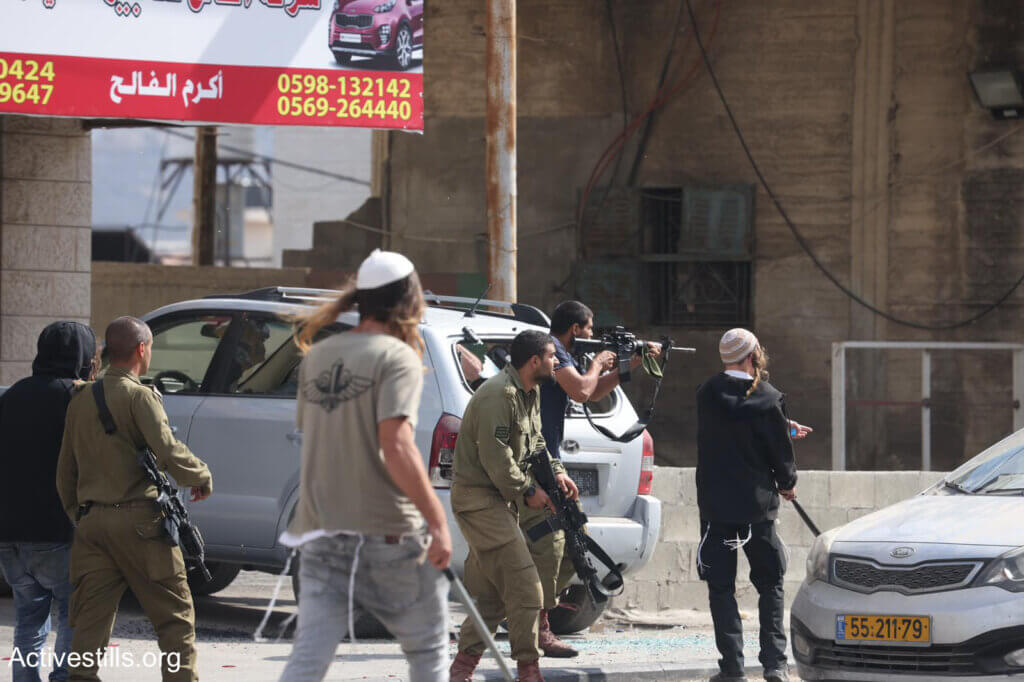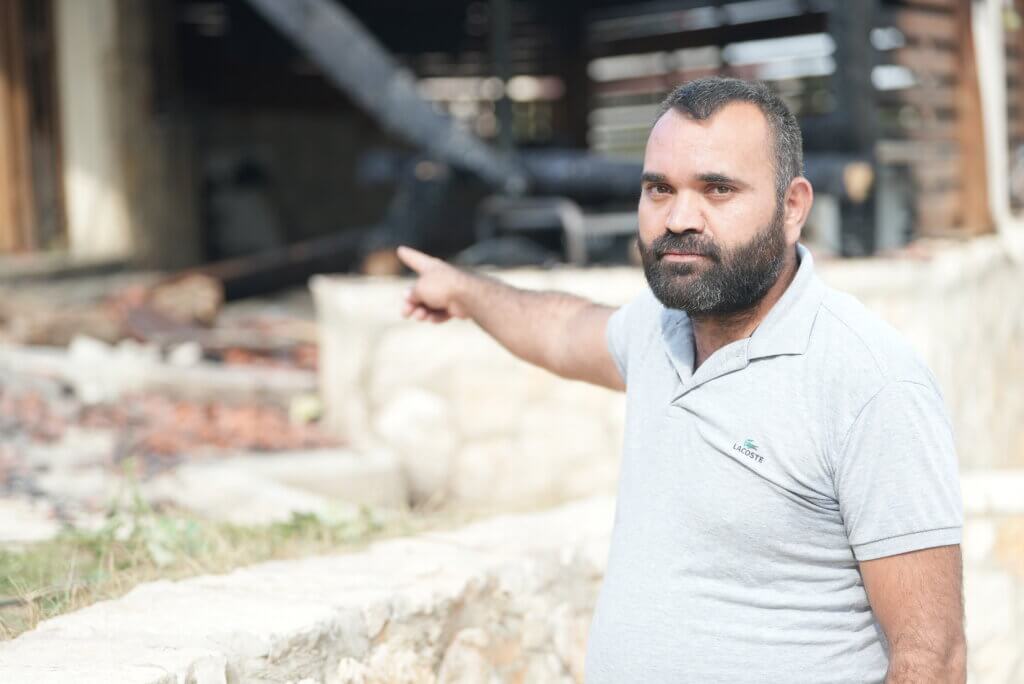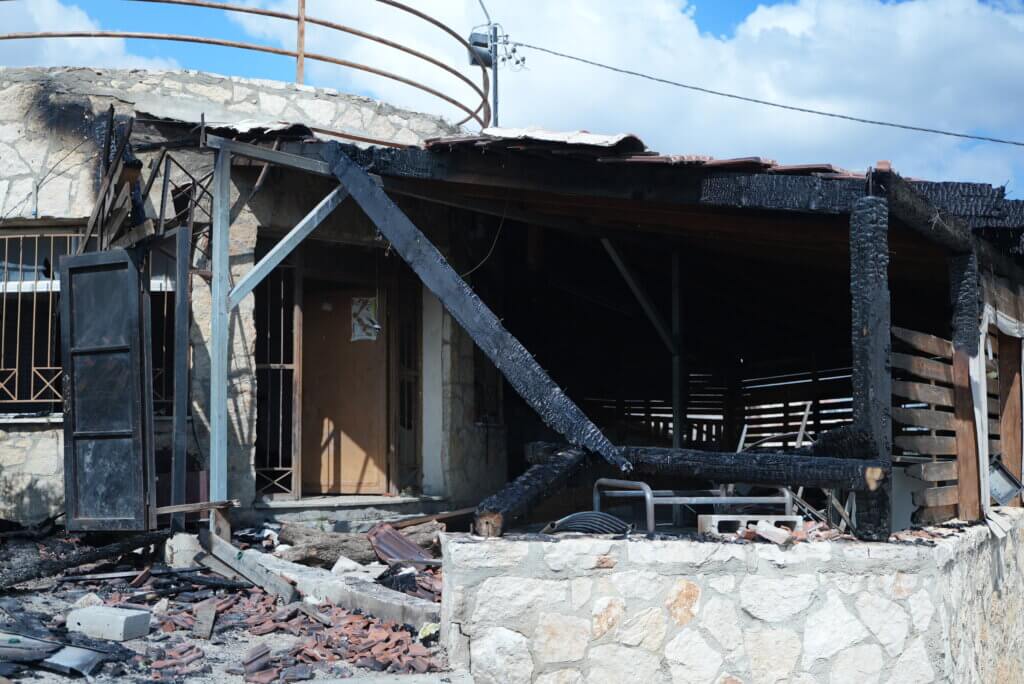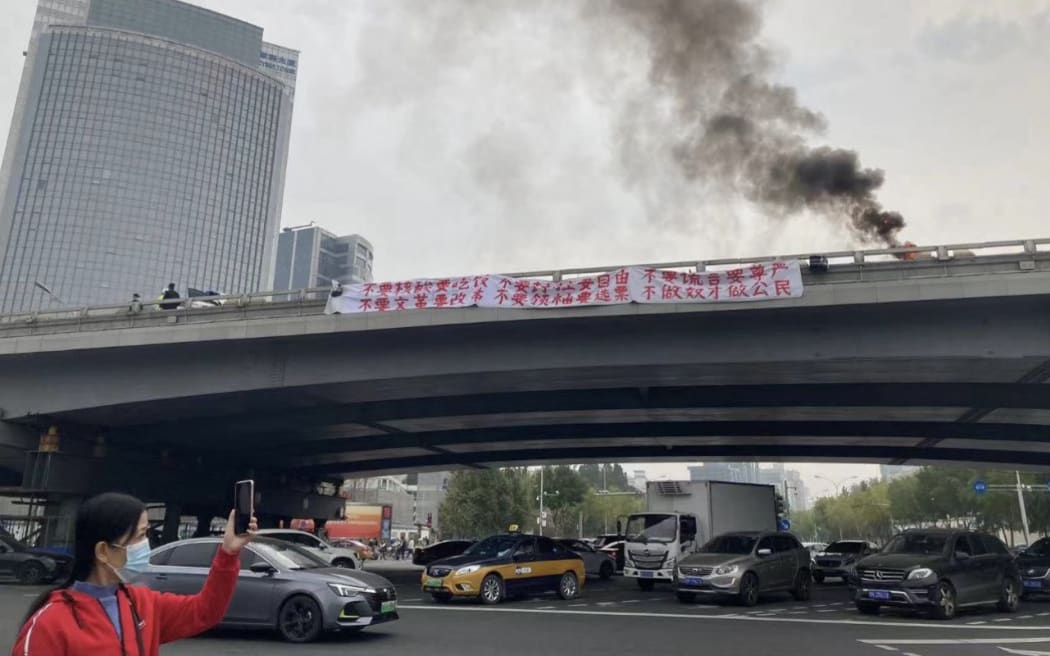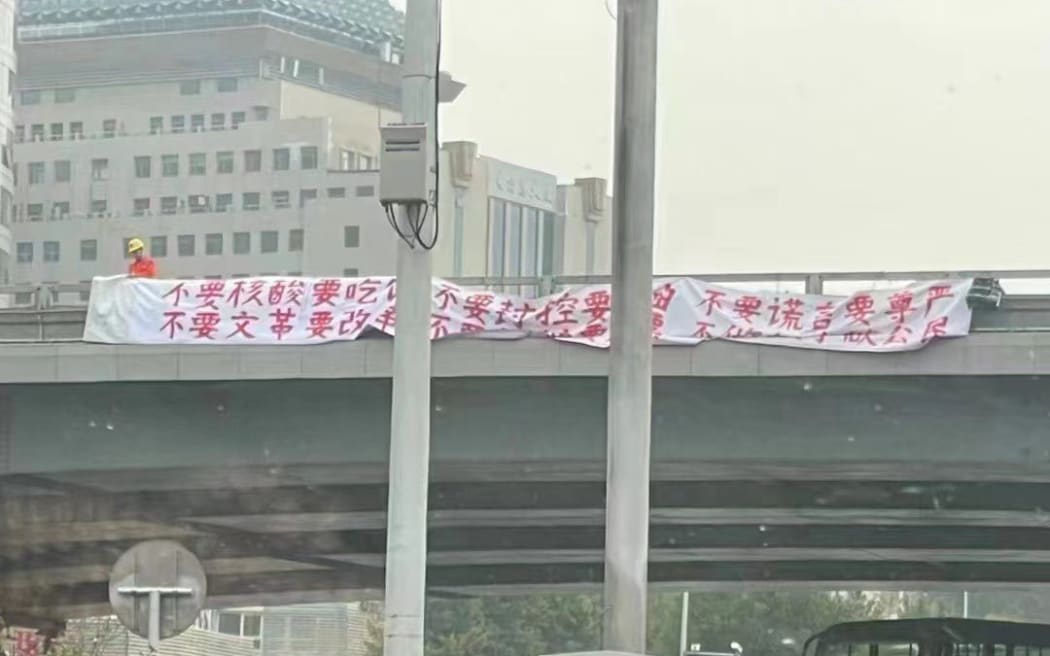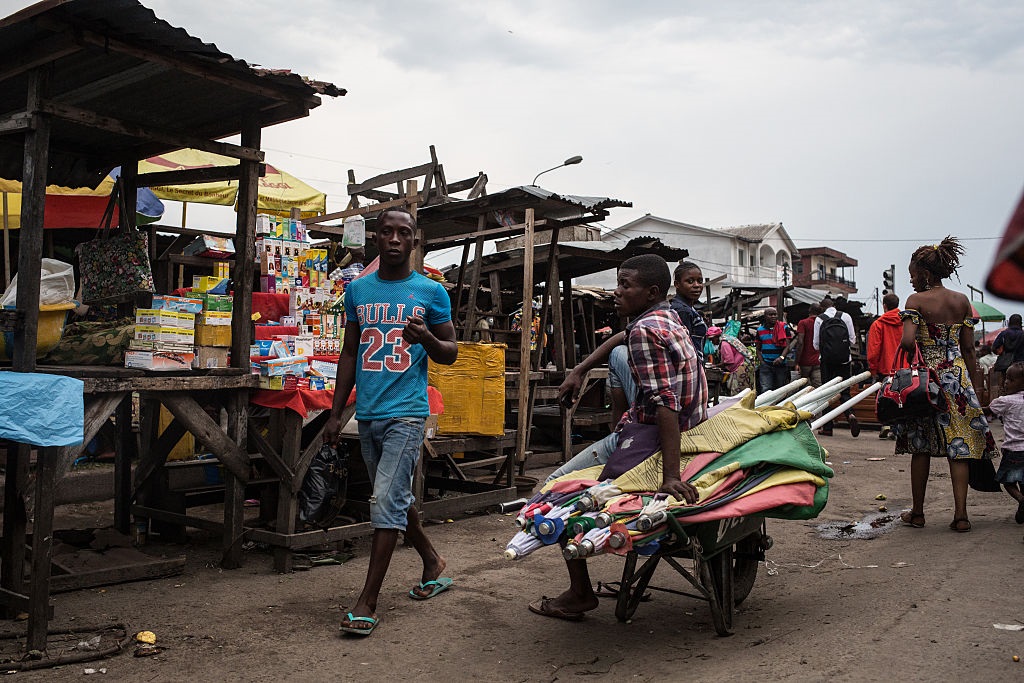
Actress Louisette Geiss speaks at a news conference by the “Silence Breakers,” a group of women who have spoken out about Hollywood producer Harvey Weinstein’s sexual misconduct, at Los Angeles City Hall, on Feb. 25, 2020. Geiss, a former actress and screenwriter who accused Weinstein in 2017, has written a musical stemming from her experiences with Weinstein, “The Right Girl,” which was waylaid by the pandemic but will be produced live onstage sometime in 2023.
BY JOCELYN NOVECK AND MARYCLAIRE DALE
ASSOCIATED PRESS
Once again, disgraced mogul Harvey Weinstein sits in a courtroom, on trial in Los Angeles while the reckoning the accusations against him launched marks a significant milestone this month: It’s been five years since a brief hashtag — #MeToo — galvanized a broad social movement.
The Associated Press went back to Louisette Geiss and Andrea Constand, accusers in two of the #MeToo era’s most momentous cases — Weinstein, already convicted in a New York case, and Bill Cosby, once convicted and now free — to learn how their lives have changed, whether they have any regrets, and how hopeful they feel after a decidedly mixed bag of legal results.
And we spoke to the woman who originally coined the phrase — Tarana Burke, a longtime advocate for sexual violence survivors and a survivor herself — about her own journey, the movement’s resilience, and the challenges ahead.
LOUISETTE GEISS: A LAWSUIT AND A MUSICAL
All in all, Louisette Geiss considers herself one of the luckier ones: When she tried to run out of a hotel room to escape Weinstein’s alleged advances, the door opened. She was able to flee.
Geiss, a former actress and screenwriter who, in 2017, accused Weinstein of attempting to force her to watch him masturbate in a hotel bathroom in 2008, was the lead plaintiff in a class action lawsuit against his former studio.
But fighting through the justice system — an experience that has deeply frustrated her — was not the only means by which Geiss has attempted to cope. She’s also written a musical.
“The Right Girl” was waylaid by the pandemic but will be produced live onstage sometime in 2023. The show, with a high-profile production team that includes songwriter Diane Warren, tells the story of three women at various levels of power in a workplace plagued by a serial sexual predator.
“In the end, you see that the judicial system is still not in the right place to take him down,” Geiss said. “It’s really society that takes him down.”
It’s a reflection of Geiss’ view that the latter has moved faster than the former to absorb the lessons of #MeToo, albeit still imperfectly.
“I think the MeToo movement definitely gave predators pause to act on their inclinations,” she said. “I think that they have been warned. And so they are less likely to do it, but I do think they’re still doing it.”
At times, yes, she had regrets about coming forward. She worried about the effects on her children, now 7 and 5 — her youngest was only weeks old when the case exploded. But it was also her children that made her realize she had to fight.
“In the end, to make a bigger change for women and for children — for your child, and for my children — it was important that I step up and do it,” she said.
That’s also why Geiss, 48, continues to encourage younger survivors to speak out — even though she understands why they may not want to.
“You don’t want your name to be synonymous with Weinstein. Neither do I,” she said of her pitch to them. “But guess what? They’re not going to go away until we keep screaming about this.”
ANDREA CONSTAND: ‘IT WAS THE RIGHT THING TO DO’
For Andrea Constand, the chief accuser in Cosby’s criminal case, the past five years have been turbulent, to say nothing of the preceding decade.
Cosby’s lawyers loudly derided her as a “con artist” during the first celebrity trial of the #MeToo era, in 2018. Yet the jury nonetheless convicted the aging comedian of drugging and sexually assaulting her in 2005 and a judge sent him to prison. Then, a Pennsylvania appeals court freed Cosby last year.
Constand had gone to police a year after the encounter with Cosby, which he called consensual. A prosecutor declined to press charges, later saying he had secretly promised Cosby he’d never be charged — a hotly debated claim that ultimately undid the conviction. And the first jury to hear her case, in 2017, couldn’t reach a verdict.
Through the yearslong storm, Constand has remained serene. She believes these are just early days for the movement.
“I think it was a much needed time to be able to address the issue [of] just how profound sexual violence is — in boardrooms, in corporations, in the entertainment industry and just generally all over,” Constand, 49, said this month from her home near Toronto, a rural retreat that she says brings her solitude and peace.
“A lot of trauma was released,” she added. “Keeping secrets can really can make you sick.”
The AP does not name people who say they have been sexually assaulted, unless they come forward publicly.
She continues to work as a massage therapist, while pushing lawmakers to adopt a legal definition of consent. As jurors in both Cosby’s Pennsylvania trial and Weinstein’s in New York deliberated, they asked for the definition — but the law in both states was silent.
She has written a memoir, and started a foundation to help sexual assault survivors through their physical, spiritual and emotional recovery. She has also created a mobile app where survivors can seek trauma-informed services.
“I had everything to lose and nothing to gain. I was a loser, you know, really, going in,” Constand said of her 2006 police complaint.
But despite all the twists and turns, “it was the right thing to do,” she concluded, citing #MeToo movements around the world.
“You have ... everybody coming out of that shame and out of that silence,” she said.
TARANA BURKE: KEEPING THE MOMENTUM GOING
Harvey Weinstein. R. Kelly. Bill Cosby. Two are in prison, one has been freed.
And that’s exactly how not to measure the success of the #MeToo movement, says Tarana Burke — as a scorecard of high-profile “wins” and “losses,” and through the lens of celebrity.
Rather, says the advocate for sexual violence survivors, cultural change should be the key metric. And by that standard, she says, the movement has achieved an “awe-inspiring” amount in five years.
“Five and a half years ago, we could not have a sustained global conversation about sexual violence that was framed inside social justice. It was always framed inside crime and punishment, or celebrity gossip,” she said.
Burke, 49, had coined “Me Too” as part of her advocacy work more than a decade before a hashtagged tweet from actor Alyssa Milano, in the wake of the Weinstein allegations, saw the phrase explode.
Just six months earlier, Burke recalls, she had been on an organizing retreat in California, handing out T-shirts and dreaming aloud about how she could revitalize her work and raise enough money to tour Black colleges and universities to raise awareness. When the spotlight shifted to #MeToo later in 2017, her first worry was that the work behind her phrase would be coopted. But she soon realized she had an enormous opportunity.
“The kind of shift we need to see sustainable change, we’re still working toward. But the shift we’ve had in the last five years would have taken 20 years to happen [without #MeToo], and that’s incredible,” she said.
Burke has spent the last few years building an organization to promote the movement, and has published a raw memoir, “Unbound,” which includes an account of how she herself was raped at 7 years old.
Burke notes proudly that a new Pew study shows more than twice as many Americans support, rather than oppose, #MeToo. But, she says, struggles remain, especially in terms of bringing Black, Indigenous, trans and disabled women into the conversation, and in shoring up fundraising.
The goal now is to keep momentum going and restore the early enthusiasm.
Burke likes to remind people that within the first year, some 19 million people went on Twitter to say “me too,” attesting to their own experiences in a powerful collective reckoning.
“This is why we have a movement that cannot be ignored,” Burke says.
